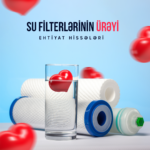The first condition for healthy and clean pool water is to maintain the chemical balance of the pool. For this, pools should be maintained periodically and chemicals that are harmless to human health should be used.
The following chemicals are commonly used for swimming pools;
But how should swimming pools be treated and what should we pay attention to?
- Check the pH Level
pH is a parameter that measures the acidity or alkalinity of water. It is important to measure the pH level first in order to properly apply pool medications. The pH level should be between 7.2-7.8. The pH level can alter the effect of pool medications. Therefore, measuring and adjusting the pH level as needed is important to the health of the pool water.
- Check Chlorine Level
Chlorine is the most common chemical used to purify pool water. Chlorine cleans water from bacteria and other harmful substances. Chlorine level in pools should be between 1-3 ppm. If the chlorine level is too low, the pool water is suitable for the growth of microorganisms. Pool water can irritate the eyes or cause skin irritation if the chlorine level is too high. You can buy a chlorine test kit to check the chlorine level.
- Adjust Dose Based on Pool Size
Before using pool medication, you need to determine the dosage according to the size of your pool. Depending on the size of your pool and the type of chemicals, the dosage amount may vary. It is imperative to adjust the dosage according to the instructions of the medication.
- Add Medications in Correct Sequence
It is important to follow the correct order when adding pool chemicals. Usually, a pH-lowering agent is added first, followed by chlorine and other chemicals. Adding pool medications in the correct sequence is critical to regulating the pool's chemical balance.
- Use an algaecide
Algae can form on the walls, bottom and surface of the pool. You should use an algaecide to prevent algae growth. Be sure to follow the manufacturer's instructions when adding an algae inhibitor to pool water. A 100-ton pool should use 1 liter of algae inhibitor once a week.
- Do Not Mix Chemicals
Pool chemicals should not be mixed together. Especially dangerous reactions can occur when these substances come together. Therefore, add chemicals separately and do not mix them.
To view pool medications and get more information to this link make the switch.





